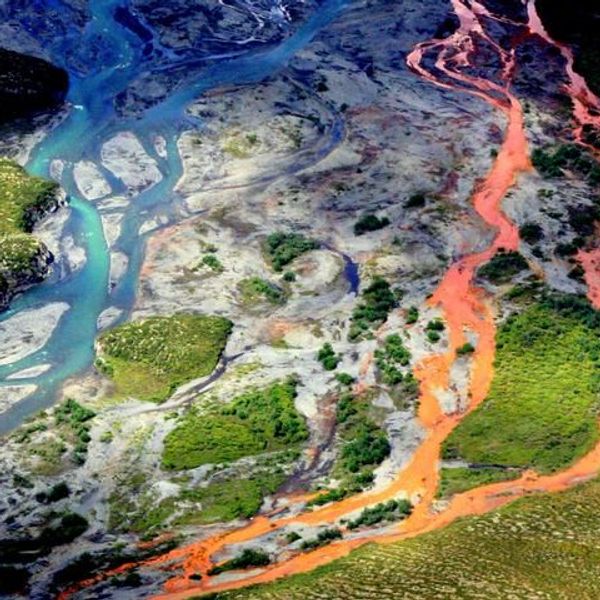Canadian glaciers may shrink by 70 percent by the end of the century, a development which could have devastating environmental effects, according to a new report published Monday in Nature Geoscience.
The report, titled Projected Deglaciation of Western Canada in the Twenty-First Century, used digital models of current glaciers and the physics of ice flow, measured against predictions of long-term global warming from the Intergovernmental Panel on Climate Change, to predict how rising greenhouse gases will affect glaciers in that region.
As the New York Times explains, "glaciers in Western Canada will shrink to less than 10 percent of the area they covered in 2005, and glaciers in the coastal regions will be reduced to about 30 percent of their 2005 size."
In the drier interior of the Rocky Mountains, up to 90 percent of the glaciers could be lost. Western Canada is home to more than 17,000 glaciers.
"Few glaciers will remain in the Interior and Rockies regions, but maritime glaciers, in particular those in northwestern British Columbia, will survive in a diminished state," the report states. "Our projected changes of ice cover in western Canada have broader ramifications for aquatic ecosystems, agriculture, forestry, alpine tourism, water quality and resource development."
The loss of glaciers is a major contributing factor to rising sea levels and could also have a profound effect on the survival rates of aquatic animals and the quality and supply of potable water, the researchers state.
"These glaciers act as a thermostat for freshwater ecosystems," lead author and University of British Columbia professor emeritus Garry Clarke said in a press release Monday. "Once the glaciers are gone, the streams will be a lot warmer and this will hugely change fresh water habitat. We could see some unpleasant surprises in terms of salmon productivity."
Clarke told the Times, "The glaciers don't respond to weather; they respond to climate. Last year's bad winter is not going to save the glaciers. On average, climate is changing, and it's not changing in ways that are good for glacier survival. And it's not good for a lot of other things, including California water."
What's more, the report's findings are "a conservative scenario," Clarke told the Washington Post on Tuesday. "All the others [models] lead to total loss of ice in the mountains there."
Andreas Vieli, corresponding author and a professor of geography at the University of Zurich, said the report's analysis could "potentially be applied to a wide range of glacierized regions" around the world.
Clarke highlighted the importance of reducing humanity's carbon footprint to battle the lasting effects of climate change, on the glaciers and elsewhere.
"We have to have a peak occur in the mid-2040s so carbon dioxide is on downward path hereafter," Clarke told the Post. "We don't have a lot of time to get there."


